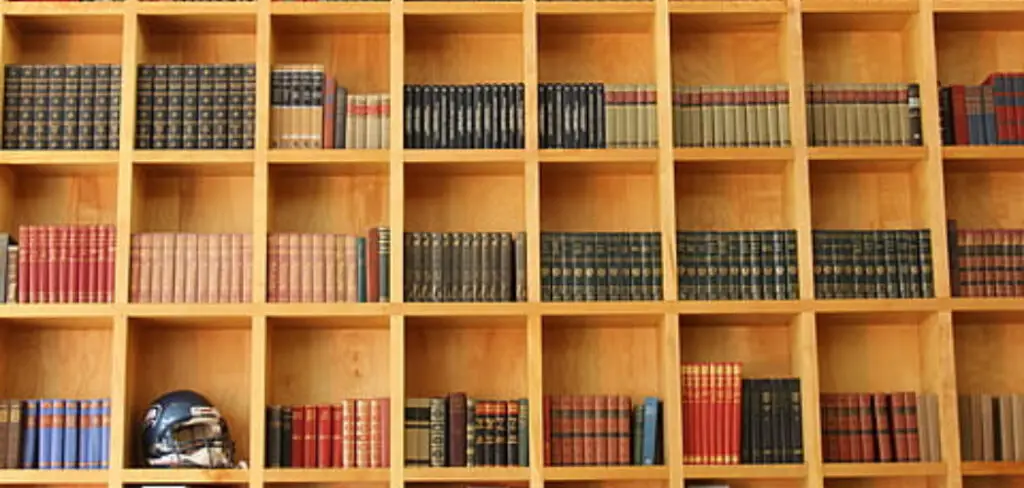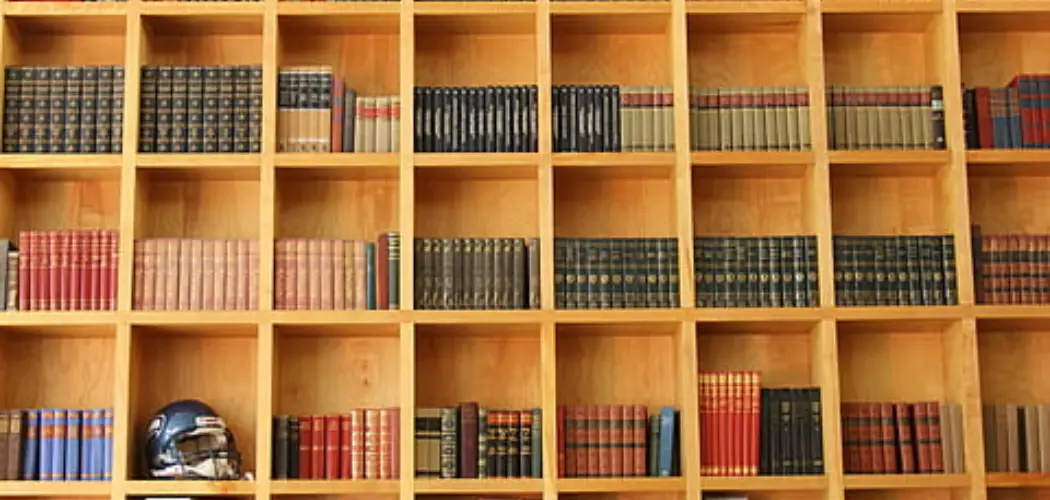Storing books in a storage unit is an excellent solution for those who don’t have room for their book collections. It also helps to protect your books from damage due to extreme temperatures, moisture, and pests. By following a few simple tips, you can ensure that your books are properly stored and remain in good condition even after they’re stored.

One of the major advantages of storing books in a storage unit is that it provides an organized and secure way to store your items. Storage units are equipped with temperature control, humidity control, and pest-control features, which help protect your book collection from damage caused by environmental factors such as extreme temperatures or moisture. In this blog article, you can find step-by-step instructions on how to store books in a storage unit.
Step-by-Step Processes for How to Store Books in a Storage Unit
Step 1: Inspect the Storage Unit
Before storing books in a storage unit, inspect the interior for any damage. Look for signs of dampness, mildew, or mold. Ensure there are no cracks or holes in the walls and ceilings that could let moisture in. Additionally, check to ensure the temperature inside the unit is not too hot or cold; this can affect the condition of your books.
Step 2: Choose Boxes Carefully
Choose sturdy boxes that will not collapse easily when stacked on top of one another. If you plan to store books in the unit for an extended period, choose acid-free or archival-quality boxes specifically made for storing books. These boxes are more durable and can protect your books from dust, moisture, and other environmental factors.
Step 3: Line the Boxes with Paper
Once you have chosen the right boxes for your books, line them with acid-free paper or tissue paper. This will protect the books from being scratched or damaged by rubbing against each other in transit or storage.

Preparing your books for storage is important before you place them in the boxes. Ensure they are clean and free of dirt, dust, and mildew. If possible, wrap each book individually in tissue paper or cotton cloth to prevent damage from moisture and humidity.
Step 4: Label the Boxes
Labeling the boxes is a must when storing books in a storage unit. This will help you track which boxes contain what and make it easier to access them should you need to open the unit again. Write the contents inside on each box, and if possible, include the estimated number of books within.
Step 5: Stack Boxes Carefully
When stacking boxes in the storage unit, place heavier boxes on the bottom and lighter ones on top. This will help prevent the boxes’ potential damage or collapse over time. Additionally, leave some space between each box so they don’t get too close together and rub against one another while in transit or when stored for a long period of time.
Step 6: Consider Climate Control
If you plan to store books in a storage unit for an extended time, consider investing in a climate-controlled unit. This will help regulate the temperature and humidity levels inside the unit, which can help protect your books from environmental damage.
Additionally, inspecting the unit regularly for any signs of damage or pests is important. Following these steps will help ensure that your books stay in perfect condition while stored. By following these simple steps, you can easily and safely store books in a storage unit for an extended period. Whether it’s just for the summer or for years to come, your books will remain safe, secure, and protected.
Safety Tips for How to Store Books in a Storage Unit

- Make sure you store books in a dry storage unit, as moisture can cause damage to the paper and bindings over time.
- Always ensure that books are stored off the ground in boxes or on bookcases so they remain protected from any potential water damage.
- Use cardboard boxes with lids for storing paperback and hardback books, as this will help protect them from dust and dirt.
- Wrap books in plastic before storing them, as this can further protect against humidity or other moisture-related issues.
- Label all boxes with the contents inside, so it’s easier to find what you’re looking for when you need to access something from storage.
- Ensure that any boxes with books inside are placed on their sides rather than stacked to prevent them from becoming damaged or warped over time.
Following these simple tips will help you keep your books safe and in good condition while they’re stored in a storage unit. Books are an important part of history, so taking the necessary steps to ensure that they’re stored properly and protected from damage is important.
Should You Store Other Items With Your Books, Such as Dvds or Magazines?
When it comes to storing your books, DVDs, and magazines in a storage unit, the answer largely depends on how organized you want to keep your items. If you’re not too concerned about the exact order or organization of your materials, then it might be fine to mix them. However, if you want each item type to have its designated space, plan for that. DVDs and other more delicate items need special consideration regarding storage.
Before packing these materials, ensure the storage unit is climate controlled so that heat, humidity, or moisture won’t cause damage. You should also wrap each item individually in bubble wrap or acid-free paper before placing them on a shelf or in boxes.

Magazines can also take up a lot of space, so you should plan for how they are stored too. Consider using acid-free boxes to store these items, and label them clearly. If you don’t need to keep all the magazines, consider donating or recycling some to free up more space.
How Often Should You Check Your Stored Books to Ensure They Are in Good Condition?
When storing books in a storage unit, it is important to check on them periodically to make sure they are in good condition. This is especially true if the storage unit has no climate control. Humidity and temperature extremes can cause mold, mildew, and other damage to books over time. It’s best to check your stored books every few months while they are in storage.
Make sure to look for signs of damage or mold; if any damage is present, take steps to mitigate it immediately. You may need to move the books to a different part of the unit, vacuum out any existing mold, or add some moisture absorbers like silica packets for extra protection.
It’s also important to make sure all the books are tightly packed and not exposed to direct sunlight. It is also important to note that if you have valuable or fragile items in your storage unit, it may be a good idea to invest in insurance for them. This will provide extra protection for any damages or losses that might occur while they are stored away.
What Kind of Climate Control is Recommended for Storing Books in a Storage Unit?
When storing books in a storage unit, climate control is an important factor to consider. Books are sensitive to temperature and humidity; too much heat or moisture can damage them over time. Thus, it’s best to choose a storage facility with climate-controlled units that maintain temperatures between 50-80 degrees Fahrenheit and humidity levels between 30-50 percent.
Climate-controlled storage units ensure that the temperature and humidity levels remain consistent inside the unit, protecting your stored books from damage. Additionally, these units are usually designed with insulation to keep out moisture, so any rain or humidity outside won’t affect the contents of your unit.
If you live in an area with extreme temperatures, such as a sweltering summer or cold winter, finding a storage unit with climate control is even more important. This will ensure your books stay in optimal condition while in storage.
Should You Use a Lock to Secure Your Books While in the Storage Unit?
St, your books in a storage unit, can be an excellent way to protect them from damage or theft. However, securing the unit with a lock is important if you plan on storing valuable books that you don’t want anyone else to access. A padlock is one of the most secure ways to protect a storage unit and its contents, allowing you to regulate who can enter the unit and preventing any unauthorized access.

When choosing a lock for your storage unit, you should opt for one that is sturdy and tamper-proof, made out of strong metal that won’t be easily broken. It should also have a locking mechanism that cannot easily be picked up by thieves.
You may also want to consider a combination lock, which eliminates the need to carry a key and ensures that only you can access your books. You should also check with the storage unit provider before selecting a lock for your unit. Some facilities may require specific types of locks or may even provide their own locks for an additional fee.
Conclusion
In conclusion, when storing books in a storage unit, it is important to consider the environment and how it will affect the condition of your books. Make sure you choose boxes that are large enough for your books, pack them gently and securely, and store them off the ground in order to reduce moisture damage.
By taking the necessary precautions, you can rest assured knowing that your beloved collection of books will remain in pristine condition while they are stored. With the right tips and tricks, you can easily store your books safely and securely in a storage unit for extended periods. I hope reading this post has helped you learn how to store books in a storage unit. Make sure the safety precautions are carried out in the order listed.
About
Angela is the chief editor of Indoorense. She began her career as an interior designer before applying her strategic and creative passion to lifestyle and home.
She has close to 15 years of experience in creative writing and online content strategy for housekeeping and cleaning,home decorations as well as other efforts.
She loves her job and has the privilege of working with an extraordinary team. She lives with her husband, two sons, and daughter in Petersburg. When she’s not busy working she spent time with her family.

